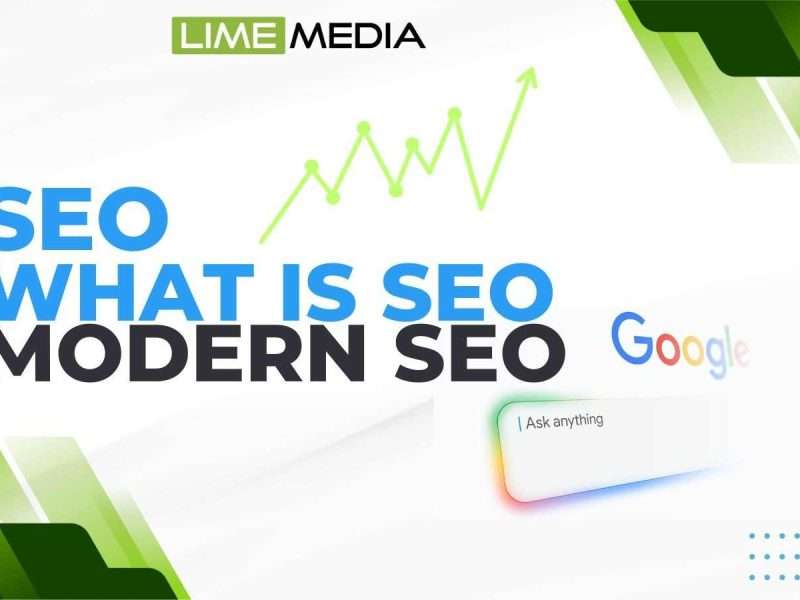Now in the modern era, everyone has smart phones in their hands and people simply open up the Google, Bing or any other Search Engine to find or buy anything they are looking for and then they found helpful websites, that’s the magic of SEO for those websites which appeared on top when you made the query. SEO (Search Engine Optimization) is the process of optimizing any website in search engines so people can find and understand it easily even more likely to appear when people are searching for answers, products or services.
In simple words, SEO is all about helping search engines connect the strings between what people want and what your website offers. Even your best offering website can’t get recognized or appear on search results without SEO so for that you must have to hire SEO expert to optimize your website in search engines like Google and Bing.
Table of Contents
Why SEO Matters in 2025
Today, millions of people are surfing the internet and making billions of searches every single day. If someone is looking for a product, a recipe, local or international services or anything informative regarding their assignments, they start browsing with a search.
If you want to get real success then you have to publish your content, sell your products and guide people on different platforms such as YouTube, TikTok, Amazon, and Pinterest because people consume pretty much content on these platforms and use to follow or subscribe the content creators. Also, people use to search things by commanding voice assistants like Siri and Alexa, they also use to get information from different AI platforms such as ChatGPT, Perplexity and Grok.
Shifting towards other platforms is a big move, and this is where modern SEO steps in because now SEO is not only to rank keywords, but it’s all about visibility in every search environment, and some are mentioned below:
- SEO (Search Engine Optimization): Traditional approach to optimizing for organic search.
- AEO (Answer Engine Optimization): Improving for voice search and Siri/Alexa.
- AIO (AI Optimization): AI-friendly structure of your content.
- GEO (Generative Engine Optimization): Having your site show up in AI-powered search results, as with Google’s AI Overviews or Microsoft Copilot.
In 2025, if you are off the search engine radar, you will be unknown to your audience.
SEO vs. SEM vs. PPC
SEO is a topic that is often mistaken for other terms. Let’s go over that:
- SEO (Search Engine Optimization): Focuses on natural search results, which rank for free.
- SEM (Search Engine Marketing): A wide range of approaches, which include SEO and pay per click.
- PPC (Pay-Per-Click Advertising): Paid for ads which is the case of Google Ads where you pay when someone clicks on your ad.
You can read PPC Guides here
Consider SEM, that large umbrella term. Within it, we have SEO (organic growth) and PPC (paid ads). If your budget is no issue, go for a combination of both which although PPC brings in the traffic immediately, SEO will give you that long term play.
How SEO Works
Search engines go through a three-step process before displaying your site to the user:
- Crawling: Robots, also known as “spiders,” go out and index your web pages.
- Indexing: Upon which we put into a large database your pages are.
- Ranking: Algorithms determine which pages rank best for you based on a few hundred variables, which include content quality, relevance, backlinks, and user experience.
In 2025, we see this done through the use of machine learning and AI. Search engines no longer base it just on keywords they look into intent, the context, also the satisfaction of the user. That which is put out there for humans first, but also made to be machine friendly.
SEO Types You Need To Know
SEO is not a one-size-fits-all. Think of it as a sports team where each player has a role:
1. Technical SEO
This includes which we see to it that your site is accessible and easy to crawl. We look at things like:
- Site speed and performance.
- Mobile-friendliness.
- Security (HTTPS).
- Fixing broken links and errors.
Without technical SEO, your content may not get indexed.
2. On-Page SEO – The Content Layer
This includes what we have put on your pages:.
- Strategic use of keywords.
- Helpful, structured content.
- Proper headings and Meta Tags.
- Internal linking for navigation.
Here is what you present your authority on to search engines and users.
3. On-Page SEO: The Brand Manager.
This issue is of authority and trust. Elements which play in:.
- Backlinks from credible websites.
- Social signals and brand mentions.
- Online reviews and reputation management.
As you gain more support from other sites, the better your chances of ranking.
4. In 202,5 we see Specialized SEO areas of expertise, which will include:
- Local SEO: Important for companies that aim at local customers.
- eCommerce SEO: Helps online shops improve category, product, and checkout pages.
- International SEO: Target international and multi-language audiences.
- News SEO: Tunes for Google News and Top Stories.
- Generative SEO (GEO): Makes your content appear in AI-generated responses.
Why SEO Isn’t “Free”
Yes, with SEO, we don’t see a pay per click model. But to be honest:
- It includes strategic planning, content creation, and technical expertise.
- You will put into use tools for keyword research, analytics, and AI readiness.
- Results are a process that may take months of consistent effort before we see great progress.
The variance is in the long-term results. As you rank, so do free daily clicks, which in turn may not require extra ad spend. That’s to say SEO is a long-term play.
The Future of SEO
The environment is in flux; this is what we see going forward:
- AI-driven search results: AI is taking over traditional 10 blue links results with summaries and chatbots.
- Voice-first search: More people are turning to Alexa, Siri, or Google Assistant for info.
- Mobile-first indexing: Google favors mobile sites in rankings so your website should be speed optimized.
- Experience-first SEO: Page performance, Core Web Vitals, and site usability, which can affect rankings, so your site should be optimized in all aspects.
In 2025, SEO isn’t only about that click, it’s about appearing at the right time, in the right place and in the right format.
FAQs
1. How much time does it take for SEO to show results?
Usually 3 to 6 months, but in competitive industries we see it take longer.
2. Which form of marketing to choose, SEO or PPC?
Both there is for them. PPC brings in immediate traffic, while SEO improves over the long term.
3. What does GEO mean in SEO?
GEO is an acronym for Generative Engine Optimization, which makes your site AI-ready.
4. Do small businesses benefit from SEO?
Yes. Local SEO brings in real customers from Google Maps, voice search, and local queries.
5. Can SEO get to #1 rankings?
No. But through the use of proper strategies SEO can put you at the top for search results.
How LimeMedia.org Can Help
At LimeMedia.org, we go beyond SEO we develop forward thinking SEO strategies. Our team is into the transition from traditional search to AI-powered platforms and we help businesses:
- Perform technical SEO audits to improve crawl and index issues.
- SEO-ify content also for AEO, AIO and GEO.
- Develop authority with link building and content marketing.
- Improve on local and eCommerce SEO to capture high intent buyers.
- Integrate SEO into analytics tools such as GA4, Oribi, Zoho, HubSpot, GHL, and Microsoft Clarity for conversion tracking.
Want your site to be on all the platforms like Google, TikTok, YouTube, and AI tools?
LimeMedia.org will you structure, improve, and grow your SEO campaigns.
Get in touch today about our custom SEO plans for 2025 and beyond.
Final Thoughts
SEO is beyond just a technical ability it is the base of today’s digital visibility. Whether you are a student running a blog, a small business owner, or a large-scale brand, SEO is what makes you findable.
But remember: SEO is a continuous process, and search engines’ algorithms change daily which is why your strategy has to also. By staying in the game and constantly learning, testing, and adapting you will out do your competition. Start today: Develop high-quality content, fix your site’s technical issues, and optimize for search engines as well as AI.



